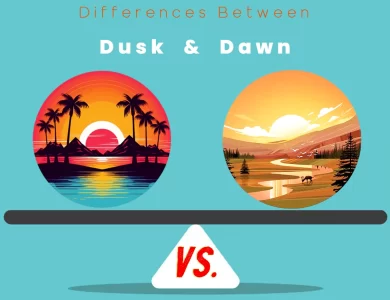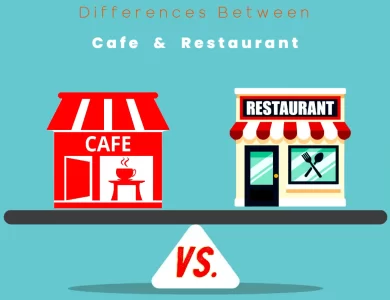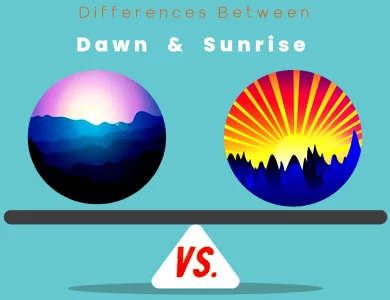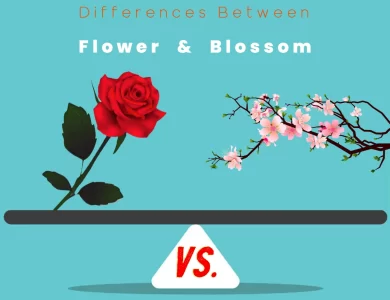
| Aspect | Guaranty | Guarantee |
|---|---|---|
| Definition | A legal commitment made by one party (the guarantor) to fulfill the obligations of a third party (the principal debtor) if the debtor fails to do so. | A broad term encompassing assurances related to the quality, performance, or fulfillment of products, services, or personal commitments. |
| Scope | Typically used in financial and legal contexts, involving obligations, debts, or financial commitments. | Extends beyond financial and legal contexts, covering product quality, services, warranties, and personal assurances. |
| Parties Involved | Guarantor, Beneficiary, Principal Debtor | Assurer, Consumer, or Recipient |
| Contract Type | Often a formal written contract, legally binding. | Can be a written contract but also includes verbal or implied assurances, depending on the context. |
| Trigger Condition | Default by the principal debtor. | Variability depending on the context, can include product malfunction, service dissatisfaction, or personal commitments not met. |
| Enforceability | Legally enforceable, often subject to the statute of frauds. | Subject to consumer protection laws, and legal requirements may vary by jurisdiction. |
| Examples | Personal Guaranty, Corporate Guaranty, Continuing Guaranty | Product Warranty, Service Guarantee, Personal Promise |
| Legal Precedents | Court decisions and legal interpretations can impact usage. | Regulatory laws and consumer protection standards influence usage. |
| Regional Variations | Usage may vary by region and country, with “guarantee” being more common in British English. | Language usage can vary regionally but generally consistent in legal and financial contexts. |
| Common Usage in Everyday Language | May be used more rigidly in legal and financial contexts but can be less strict in everyday conversation. | Used interchangeably in everyday speech, with context determining the intended meaning. |
In a world teeming with contracts, warranties, and assurances, understanding these distinctions is not just a matter of semantics; it’s about safeguarding your financial well-being, ensuring the quality of your purchases, and holding true to promises made.
Differences Between Guaranty and Guarantee
The main differences between Guaranty and Guarantee lie in their scope and usage. “Guaranty,” spelled with a “ty” at the end, primarily relates to legal and financial commitments, where one party assures to fulfill the obligations of another in case of default. In contrast, “Guarantee,” with a “tee” at the end, extends to a broader spectrum, covering quality assurances, warranties, and personal promises. While Guaranty is commonly used in formal contracts and financial transactions, Guarantee is prevalent in everyday language, encompassing product warranties, service assurances, and personal commitments. Understanding these distinctions is essential for clear communication and informed decision-making in both legal and consumer contexts.
Definition of Guaranty and Guarantee
Guaranty
A “guaranty,” spelled with a “ty” at the end, is a legal term that refers to a promise made by one party (the guarantor) to a second party (the beneficiary) to fulfill the obligations or debt of a third party (the principal debtor) if the principal debtor fails to do so. In essence, it’s a contractual arrangement where the guarantor takes on the responsibility of ensuring that the debtor’s obligations are met. The guaranty typically outlines the specific terms and conditions under which the guarantor will step in and fulfill the obligations, and it can encompass various financial transactions and agreements, such as loans, leases, or contracts.
The following table illustrates the key components of a guaranty:
| Element | Description |
|---|---|
| Parties Involved | Guarantor, Beneficiary, Principal Debtor |
| Responsibility | Guarantor commits to fulfilling debtor’s obligations |
| Legal Agreement | Often a formal contract |
| Trigger Condition | Default by the principal debtor |
| Enforcement | Beneficiary can enforce the guaranty if required |
Guarantee
On the other hand, a “guarantee,” with a “tee” at the end, is a broader term that encompasses various types of assurances or promises to ensure the performance or quality of a product, service, or even a person. Unlike a guaranty, which is more commonly associated with financial and legal contexts, a guarantee can extend to warranties, quality assurances, or personal assurances.
Here’s a brief breakdown of the key aspects of a guarantee:
| Element | Description |
|---|---|
| Scope | Extends to product quality, services, and more |
| Assurances | Ensures performance, quality, or fulfillment |
| Application | Not limited to financial or legal contexts |
| Examples | Product warranties, service guarantees, etc. |
Types of Guaranties and Guarantees
Types of Guaranties
- Personal Guaranty: In a personal guaranty, an individual (the guarantor) assures to fulfill the obligations of a third party, such as a friend’s loan or a family member’s lease. Personal guaranties are often used in personal financial matters.
- Corporate Guaranty: This type of guaranty involves a corporation or business entity serving as the guarantor, typically to secure a business loan or financial transaction. It separates the personal liability of the business owner from that of the company.
- Continuing Guaranty: A continuing guaranty is an ongoing commitment to guarantee the performance of a debtor’s obligations, especially in situations involving multiple transactions over an extended period.
Types of Guarantees
- Product Guarantee: In the realm of consumer goods, a product guarantee, also known as a warranty, assures the buyer that the product will perform as specified, and the manufacturer will replace or repair it if it doesn’t.
- Service Guarantee: Businesses often offer service guarantees, promising customer satisfaction or a refund if the service doesn’t meet the agreed-upon standards. This builds trust and reassures customers.
- Personal Guarantee: Similar to the personal guaranty, a personal guarantee here refers to an individual’s commitment to ensure their own performance in a non-financial context, such as guaranteeing their presence at an event or fulfilling a personal promise.
Legal Implications
Legal Aspects of Guaranties
Guaranties have distinct legal implications, often enforced through contracts. When a principal debtor fails to fulfill their obligations, the beneficiary (the party to whom the guaranty is owed) can legally hold the guarantor accountable for the debt. The guarantor, in this context, becomes a secondary obligor.
Here are some key legal aspects of guaranties:
- Enforceability: Guaranties are legally enforceable, and courts can compel the guarantor to fulfill their commitment when the principal debtor defaults. Courts generally interpret guaranties strictly according to their terms.
- Statute of Frauds: Many jurisdictions require that guaranties be in writing to be enforceable, as they often involve significant financial obligations. This requirement is known as the statute of frauds.
- Joint and Several Liability: In some cases, guarantors can be held jointly and severally liable. This means that each guarantor can be held individually responsible for the entire debt if others fail to fulfill their obligations.
Legal Aspects of Guarantees
Guarantees, particularly those related to product quality and services, also have legal implications, albeit of a different nature. These legal aspects are often governed by consumer protection laws and regulations.
Key legal aspects of guarantees include:
- Consumer Protection: Guarantees on products and services are often regulated by consumer protection laws. These laws define the minimum requirements for warranties and guarantees to protect the rights of consumers.
- Duration: Some jurisdictions specify the minimum duration of product guarantees or warranties. For example, a guarantee might be required to cover a product for a certain period, ensuring its durability and quality.
- Limitations: Guarantees may have limitations and exclusions, which should be clearly stated. These limitations often define the circumstances under which a guarantee is not applicable.
- Remedies: In cases of a breach of guarantee, consumers typically have remedies such as repair, replacement, or refund, depending on the terms of the guarantee.
Financial Applications
Financial Use of Guaranties
Guaranties are primarily associated with financial transactions and are instrumental in mitigating the risk associated with lending and borrowing money. Financial institutions, businesses, and individuals frequently use guaranties to secure loans and other financial agreements.
Here are the common financial applications of guaranties:
- Business Loans: When a company seeks a loan, a corporate guaranty might be required, especially for startups or businesses with limited credit history. This adds an additional layer of security for the lender.
- Real Estate Transactions: In real estate, personal guaranties are often used when tenants lease property. Landlords may require a personal guaranty to ensure that rent will be paid, even if the business renting the property faces financial difficulties.
- Small Business Financing: For small business owners, personal guaranties may be needed to secure financing. This personal commitment reassures lenders that the owner is dedicated to the business’s success.
Financial Use of Guarantees
Guarantees, while not exclusively financial in nature, also have financial implications. They provide consumers with peace of mind when making purchases, knowing that they can seek recourse if the product or service does not meet expectations.
Common financial applications of guarantees include:
- Retail Products: Manufacturers often provide guarantees on consumer products, which can influence a buyer’s decision. If the product doesn’t perform as promised, the consumer can seek a refund or replacement.
- Service Contracts: Service providers, such as home improvement companies or contractors, may offer service guarantees to assure customers of quality work. If the service falls short, the customer can expect a remedy or refund.
- Extended Warranties: Consumers have the option to purchase extended warranties, essentially extended guarantees, for products like electronics or appliances. These warranties provide additional protection and peace of mind for the buyer.
Common Usage in Everyday Language
Everyday Usage of Guaranties
In everyday language, people may not always distinguish between “guaranty” and “guarantee” with strict adherence to their legal or financial definitions. However, the context often makes it clear which term is being used.
Common examples of how “guaranty” is used in everyday language include:
- “I gave a guaranty to my friend’s landlord to cover their rent if they can’t pay.”
- “The bank required a personal guaranty from the business owner for the loan.”
Everyday Usage of Guarantees
Likewise, in daily conversations, people use the term “guarantee” more broadly and may not differentiate it from “guaranty.” It often pertains to assurances related to products, services, or personal commitments.
Examples of how “guarantee” is used in everyday language include:
- “The warranty guarantees that your phone will be replaced if it’s damaged.”
- “I guarantee I’ll be at the party, no matter what.”
Guaranty vs Guarantee: When to Use Which?
Understanding when to use “guaranty” or “guarantee” comes down to the context and the specific type of assurance or promise being conveyed. Here’s a simple guideline:
- Use “guaranty” when referring to a legal or financial commitment, such as ensuring the performance of a debt or obligation.
- Use “guarantee” when referring to assurances related to the quality, performance, or fulfillment of products, services, or personal commitments.
In formal and legal documents, it’s crucial to use the correct term to avoid ambiguity or potential misunderstandings. Additionally, being aware of the specific legal and financial implications of “guaranty” is essential in those contexts.
Legal Documents and Contracts
When drafting legal documents and contracts, precision in language is paramount. Using the correct term can prevent confusion and disputes down the road. Let’s explore how these terms are used in such contexts.
Usage in Legal Documents
- Guaranty in Legal Documents: A legal contract outlining a guaranty may specify the roles and responsibilities of the parties involved. For example, in a personal guaranty, it will define the guarantor’s obligation to cover the debt if the principal debtor defaults.
- Guarantee in Legal Documents: In contrast, the term “guarantee” may be used in various legal documents to refer to assurances beyond financial obligations. For instance, a service agreement may include a section on the “guarantee of workmanship,” which outlines the quality assurance provided by the service provider.
Financial Institutions and Loans
Financial institutions play a significant role in the application of both guaranties and guarantees. They often require these assurances to minimize risk.
Financial Institution Requirements
- Guaranty for Loans: When seeking a loan, especially for business purposes, financial institutions may insist on a corporate guaranty to secure the loan. In this case, the business entity becomes the guarantor, committing to repay the loan if the business defaults.
- Guarantee for Loan Products: Some financial products, such as mortgages, may have guarantees in place. For example, government-backed loans like FHA loans have a “guarantee” from a government agency, ensuring the lender against borrower defaults.
Product Warranty and Guarantees
Understanding the difference between product warranties and guarantees is crucial when making purchases, as it can impact your consumer rights.
Warranty vs Guarantee for Products
- Product Warranty: A “product warranty” typically refers to the manufacturer’s promise to repair or replace a product if it malfunctions within a specific period. Warranties are more common in the context of consumer electronics, appliances, and vehicles.
- Product Guarantee: The term “product guarantee” may be used interchangeably with “warranty.” However, it emphasizes the assurance of quality and performance. For instance, a “100% satisfaction guarantee” signifies the manufacturer’s commitment to customer satisfaction.
Personal Commitments and Promises
In everyday conversations, the usage of these terms can be flexible, depending on the context.
Personal Guaranties and Guarantees
- Personal Guaranty in Everyday Speech: When a friend assures you they’ll cover your dinner bill if you forget your wallet, they are essentially offering a “personal guaranty” to make sure the commitment is fulfilled.
- Personal Guarantee in Everyday Speech: On the other hand, if someone says, “I guarantee I’ll be at your party,” it’s a personal promise, which falls under the broader umbrella of a “personal guarantee.”
International Variations
It’s worth noting that language use can vary between regions and countries. In some English-speaking countries, one term may be preferred over the other in legal and financial contexts. For instance, “guarantee” is often used more commonly than “guaranty” in British English. Therefore, understanding regional preferences is essential.
Legal Precedents and Case Law
Legal interpretations and precedents can impact how these terms are used in practice. Court cases and legal decisions can set standards for the usage of “guaranty” and “guarantee.” It’s crucial to stay informed about evolving legal interpretations.
In conclusion, the distinction between “guaranty” and “guarantee” may appear subtle, but it holds significance in legal, financial, and consumer contexts. Using the correct term can help prevent misunderstandings and ensure compliance with legal requirements. Whether you’re drafting a legal document, purchasing a product, or making personal commitments, being mindful of these distinctions can enhance clarity and accountability in your interactions and agreements.
FAQs
The key difference lies in their scope and application. “Guaranty” pertains to legal and financial commitments, where one party ensures the fulfillment of obligations by another party in the event of default. “Guarantee” encompasses a broader range, including quality assurances, warranties, and personal promises.
Use “Guaranty” when referring to a formal legal commitment, often in written contracts, where one party (the guarantor) commits to fulfilling the obligations of another (the principal debtor) if they fail to do so.
In everyday conversation, “Guarantee” is used more broadly and can include assurances related to product quality, services, or personal commitments. It’s not limited to formal financial or legal contexts.
While they are often used interchangeably in informal speech, using the correct term in formal legal and financial contexts is crucial to avoid confusion or misinterpretation.
Yes, language usage may vary by region and country. For example, “Guarantee” is more common in British English. It’s essential to be aware of regional preferences in legal and financial contexts.
A “Guaranty” could be a corporate entity assuring a loan, while a “Guarantee” might refer to a product warranty ensuring the quality of a purchased item or a personal commitment to be present at an event.
Yes, legal interpretations and precedents can influence how “Guaranty” and “Guarantee” are used in practice. Consumer protection laws and regulations define the standards for “Guarantee” in product and service contexts.
Read More:
Contents
- Differences Between Guaranty and Guarantee
- Definition of Guaranty and Guarantee
- Types of Guaranties and Guarantees
- Legal Implications
- Financial Applications
- Common Usage in Everyday Language
- Guaranty vs Guarantee: When to Use Which?
- Legal Documents and Contracts
- Financial Institutions and Loans
- Product Warranty and Guarantees
- Personal Commitments and Promises
- International Variations
- Legal Precedents and Case Law
- FAQs






